TikTok Amazon Ads Integration: What Brands Need to Know
Amazon checkout on TikTok has been announced! Here's what we know about the new TikTok Amazon ads integration and how it impacts brands and creators.
Not sure what to make of TikTok Shop? We dig into TikTok’s latest shopping features and what brands working with influencers need to know about them.
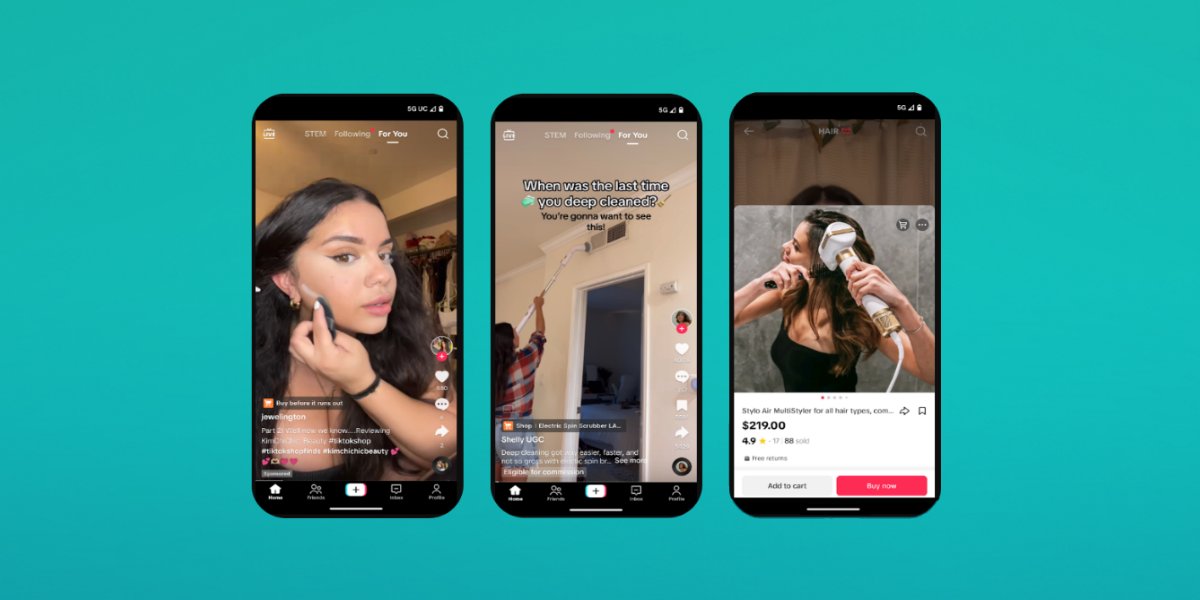
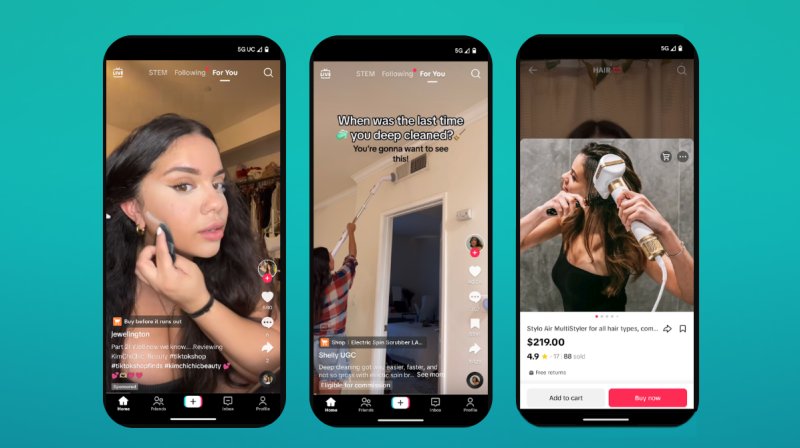
The long-anticipated launch of TikTok Shop in the US has brands and creators buzzing.
Because selling directly through TikTok means major opportunities for both parties.
Fresh promotions. Better influencer attribution. New revenue streams. The list goes on!
Chances are that your own feed is flooded with shoppable posts and live streams right now. With items hitting 10,000+ sales in weeks, Shops is not a flash-in-the-pan feature.
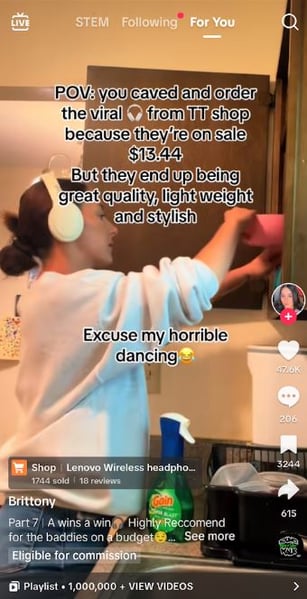
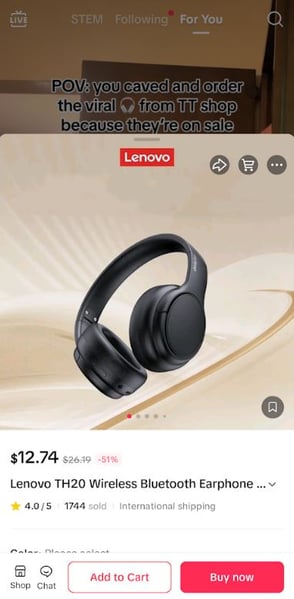
Shops could transform how brands treat TikTok creator promotions moving forward.
But the rapid rise of TikTok shopping is also setting off alarm bells for brands:
“Is TikTok trying to replace our affiliate program? What about our influencers?”
Don’t panic or reinvent your influencer marketing strategy just yet!
This post digs into what brands working with creators should know about TikTok Shop. We'll explain key features, drawbacks and opportunities for brands on the platform.
ICYMI: What’s the Deal with TikTok Shop? 🛍️
Skip to Section 👇 |
For brands with affiliate and ambassador programs, TikTok Shop is tricky.
The platform currently offers two affiliate options for brands: "Open" and "Targeted."
With Open affiliates, brands open up their product catalog to be sold by just about anybody.
The good news? Building an army of TikTok affiliates will be easier than ever.
The catch? Open affiliates TikTok Shop means a free-for-all when it comes to creator quality. That's because you can't audit your influencers and ensure on-brand content from them.
As of October 2024, the only requirements to become a TikTok Shop affiliate are:
That’s a pretty low bar, right? Brands often maintain strict ambassador program requirements to attract high-quality, authentic creators. Your affiliates are an extension of your brand.
With Targeted affiliates, brands invite creators of their choice to create shoppable posts. This provides some flexibility and peace of mind in terms of who you partner with.
And there are plenty of TikTok Shop affiliates crushing it right now.
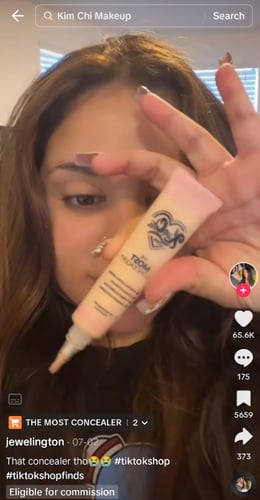
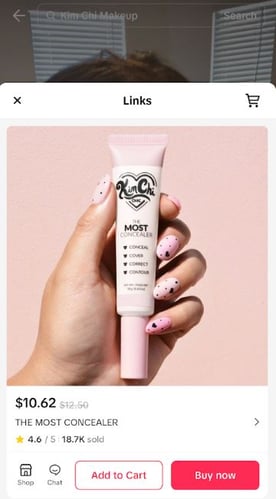
Source: @jewelnotjuuul
That said, Targeted affiliates aren't without their downsides.
For starters, you still won't have much creative input or control when it comes to affiliate content. Unlike with influencer posts, you lose crucial steps like content approvals. That puts your brand image entirely in the hands of the affiliate representing you.
You also sacrifice scalability. Targeted affiliates still require the legwork of finding TikTok influencers. That doesn't even take into account other time-consuming tasks such as vetting, fulfillment and actually setting up your TikTok Shop before you get a single post.
TikTok has never been shy about promoting products in the #ForYou feed.
And it’s clear that the same rules apply to shoppable posts.
Product-centric posts with TikTok Shop links are already taking over our feeds. Couple that with a boom in creator-based Spark ads that also include Shop links.
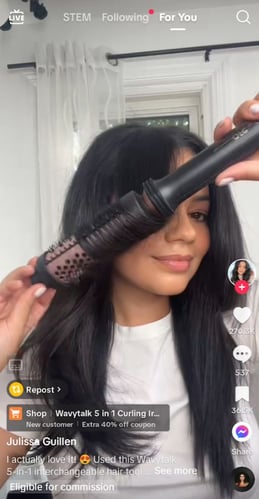
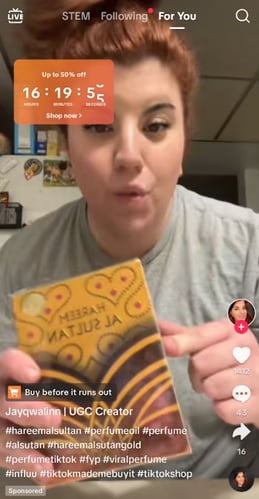
Source: @julissa_guillen /@jayqwalinn
Beyond #ForYou, the app is pushing product listings to the top of TikTok search results.
This is in addition to the dedicated shopping tab found on the search homepage.
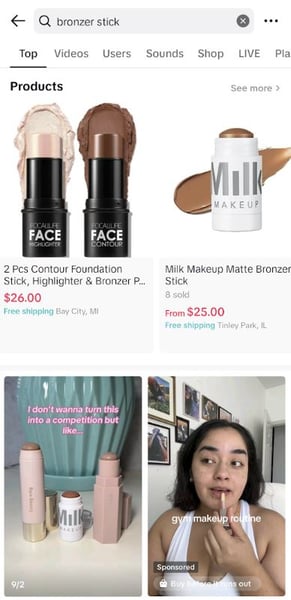
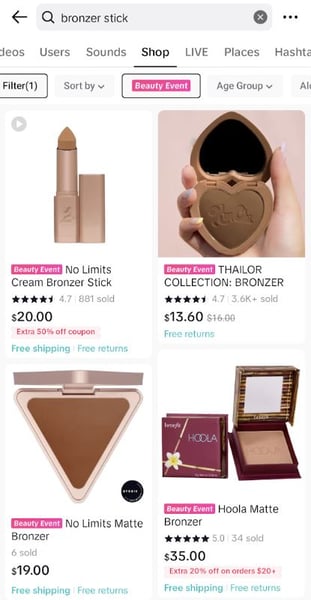
If you’re working with influencers, this isn’t a reason to panic.
Shoppers are much more likely to check out a product recommended by a creator regardless. This applies to organic posts and ads alike (and TikTok confirms this). As long as you’re scaling content featuring creators, you’re golden.
This signals the ongoing importance of TikTok SEO. Top rankings are prime real estate, especially when Shop listings are above the fold. Creators can help you stay on top.
Some brands may still be shaky on TikTok given the ban controversy earlier this year.
That said, the effectiveness of TikTok influencer marketing speaks for itself. Our brands are seeing results on the app and are likewise ramping up their efforts there.
Still, TikTok Shop still has a ways to go when it comes to its reputation.
A recent Bloomberg report claims that TikTok Shop is rife with third-party seller spam. Also, there are instances of shoppers receiving knock-off products from merchants:
“Shop is plagued by the same problems with a free-for-all marketplace that Amazon has faced . . . Misspelled brand names and implausible prices on many of the listings raise red flags for potential counterfeit sales.”
Spend some time combing through TikTok Shop listings yourself. You’ll likely find a fair share of reviews that mention missing orders or fake products.
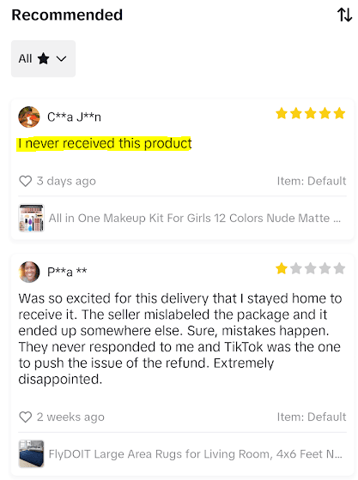
On the flip side, our own team members have purchased from the Shop with no issues. For every negative review, you can also find (seemingly) authentic, positive product reviews. There also seem to be more big box brands popping up on the platform daily.
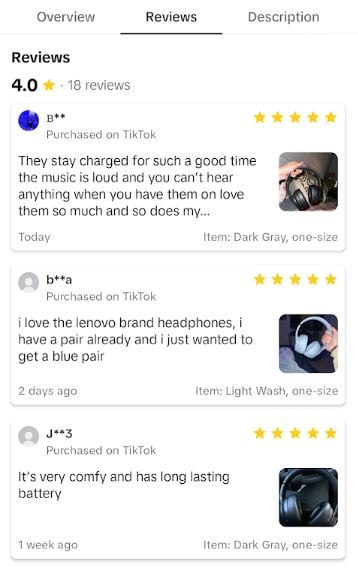
Rumors are that TikTok is playing a long game to keep all ecommerce activities on-platform. This could mean phasing out external links for brands and non-Shop affiliate links for creators.
According to a recent report from ZDNet:
“The Information recently reported that inside sources revealed that TikTok Shop is expected to lose more than $500 million in the US this year. TikTok's push towards in-app shopping is likely an attempt to raise revenue and curtail further loss.
The same report revealed that TikTok plans to ban outside e-commerce links, such as the Amazon Storefront links that most creators keep within their TikTok bio to push viewers further to purchase the app.”
This drastic move might make financial sense for TikTok.
However, it would also cripple influencers’ ability to promote their off-platform affiliate links. This all-or-nothing approach could put creators in a tough spot.
Keep in mind that this development isn’t 100% confirmed. Eliminating shopping options seems like a questionable move for TikTok but we’ll have to see what happens.
We’ll say it again: TikTok doesn’t see itself as a social app.
The Shop isn’t a half-hearted commitment: it’s the app’s push to be a leader in social commerce. Like it or not, it’s working.
Regardless of any criticism of the Shop, there’s no denying its popularity already. Again, shoppable posts are flooding the #ForYou page and ads are everywhere.
And given that TikTok has established the Shop internationally, it’s likely here to stay.
Let’s be super clear: TikTok Shop represents a massive shake-up in social commerce.
But the launch isn’t all gloom and doom for brands working with influencers.
Not by a long shot.
The rise of TikTok shopping really reinforces the importance of having an established creator marketing strategy. The more brand advocates you have creating UGC, the better. This applies regardless of whether your brand is active on TikTok Shop.
And if you need a high volume of TikTok influencers creating on-brand content featuring your products, Statusphere’s software can help.
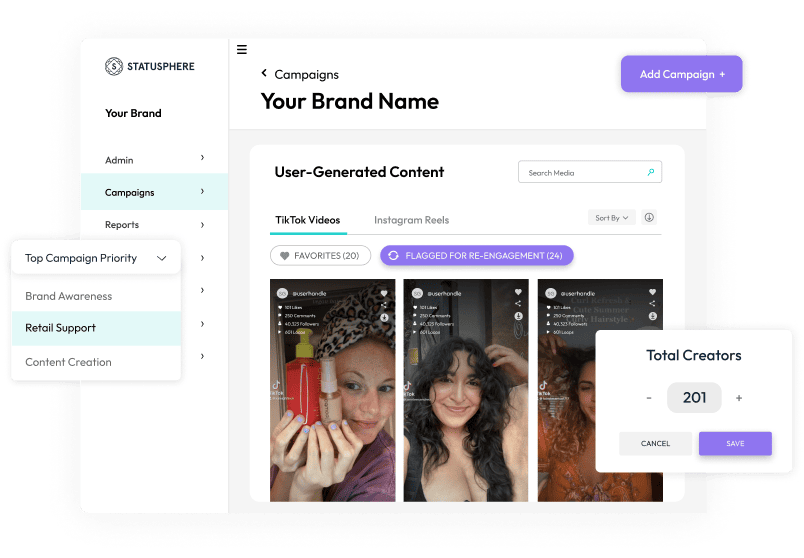
Our micro-influencer platform matches brands with creators from our vetted influencer network using 250+ unique, first-party data points. Unlike other platforms, Statusphere provides brands with guaranteed posts from relevant influencers to support scalability.
We’ve already generated 75,000+ pieces of authentic content for 400+ brands.
Want to see how our software works? Get in touch with one of our experts to see how we can grow your influencer presence on TikTok with guaranteed content at scale.
Amazon checkout on TikTok has been announced! Here's what we know about the new TikTok Amazon ads integration and how it impacts brands and creators.
Trying to figure out how to sell on TikTok Shop? Here are five opportunities to optimize your storefront and examples of the best TikTok Shops we've...
TikTok Shop Ads are helping brands to drive direct sales from TikTok without requiring buyers to bounce from the app. Learn all about how TikTok Shop...
Be the first to know about the latest tools, trends and strategies in influencer marketing for brands.